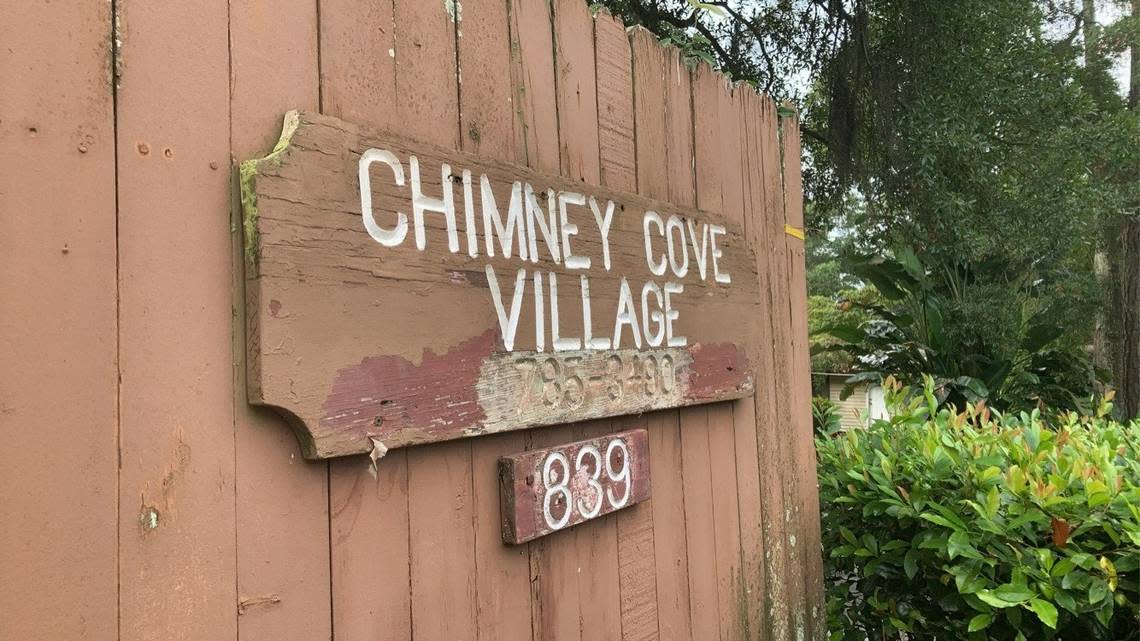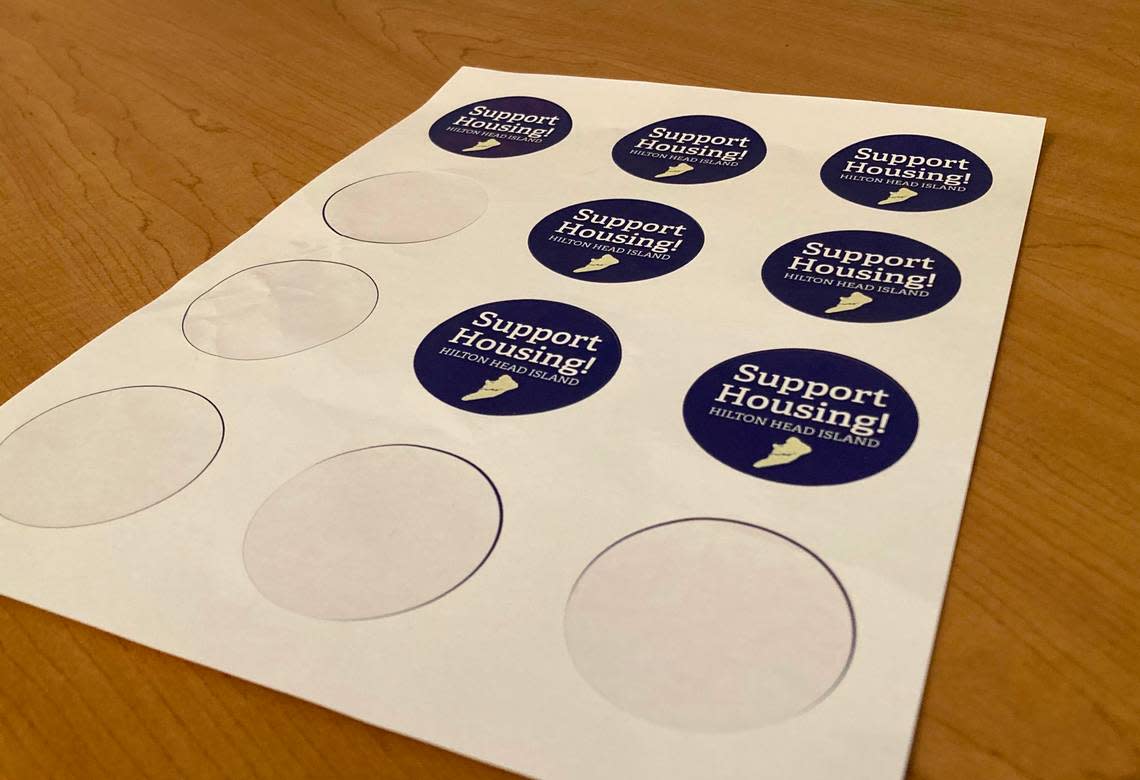Hilton Head OKs affordable housing plan, formalizing shift that began at Chimney Cove
Applause filled the Hilton Head Town Council chambers Tuesday evening as faith leaders, nonprofit organizers and residents celebrated a new plan from the town to tackle affordable housing.
The jubilation stands in stark contrast to the solemn atmosphere in the same room on Sept. 6, when town council called a special meeting to address August eviction notices at Chimney Cove that gave some residents less than 30 days to vacate. The evictions were later rescinded, but would have forced around 300 people out of one of Hilton Head’s few affordable housing options.
That crisis, and the looming threat that Chimney Cove’s closure may only have been delayed, helped kick-start the effort to craft the newly adopted workforce housing framework, a four-pillar strategy introduced last Tuesday in a town council workshop.
The four pillars will be carried out simultaneously and involve the following steps: hiring town staff dedicated to affordable and workforce housing; educating the public on the need for housing; and creating a plan to identify and preserve the island’s existing affordable housing.

The search for funding
The primary unknown in the Oct. 26 presentation was the fourth pillar — revenue. That was partially addressed by town council Tuesday with a resolution to call on the state legislative delegates to allow for the use of accommodations and hospitality tax funds for workforce housing.
Residents at the meeting expressed initial concern that opening the door to using those funds on housing would create competition with other nonprofits on the island that rely on them.
Martin Lesch, a resident who addressed council, cautioned the broad implications affecting “thousands of jobs” tied to organizations reliant on accommodations and hospitality tax funding.
Ward 2 Councilman Bill Harkins, however, said the action was meant only to give the town a future option, should it be needed, to fund housing efforts. The accommodations and hospitality tax revenue streams will not serve as the primary source for housing funds.
“We’re not robbing Peter to pay Paul,” Harkins said. “It is an option, but you don’t want to do anything to degrade an asset that you have here in the community, like the symphony, like the performing arts activities. That would be regressive management, in my opinion.”

In the same agenda item, the town has asked state delegates to increase the annual appropriation of state housing tax credits to $40 million. It’s currently capped at $20 million.
Hilton Head also pledged its first-year contribution to the regional housing trust fund through an agenda item. The town will allocate $156,815 toward the trust, which municipalities across Beaufort and Jasper counties can use to fund affordable housing projects.
Town Manager Marc Orlando has been charged with identifying $1 million in recurring funds in the current fiscal year budget to fund the town’s new housing framework into the future. Following the meeting, Orlando didn’t immediately confirm which parts of the budget might present options to reallocate funds, but said he “had an idea.”
“Let me sleep on it,” he quipped.
In future town council agendas, Ward 1 Councilman Alex Brown suggested a part of the town manager’s report include updates on affordable housing to keep the effort front-of-mind for a soon-to-be revamped town council, which will have at least three new members and up to four, if Ward 4 incumbent Tamara Becker is not reelected.
“I like (Brown’s) suggestion to keep it up on the agenda,” said the Rev. June Wilkins, who leads the congregation at Christ Lutheran Church, next door to Chimney Cove. “We have to keep this in front of people. It’s not over yet ... We haven’t heard anything official (about Chimney Cove’s closure) but we know that this is always a possibility.”
Mid-island changes approved
Other notable agenda items included the approval of the Mid-Island Tract and Mid-Island district projects.
The Mid-Island Tract redevelopment plan is headlined by a 102-acre park area, which conceptual documents show may support open-air markets, relocation of the St. James Church, an eco-park area and more.
Ward 6 Councilman Glenn Stanford assured residents the agenda item’s passage didn’t indicate any construction would begin soon, only that the town was approving of concepts presented thus far. The entirety of the project is broken up into phases that would be completed over several years. The base cost for currently proposed phases is around $56.5 million.
The Mid-Island District project is a redevelopment plan encapsulating the Mid-Island tract area and surrounding communities, including many of the island’s Historic Gullah communities.
The project’s primary focuses include creating a consistent land-use map for the area and increasing density in the area to 6 to 8 dwelling units per acre, according to the agenda packet. The plan also looks to incorporate mixed-use zoning in the area, allowing for residential and commercial uses in close proximity.
